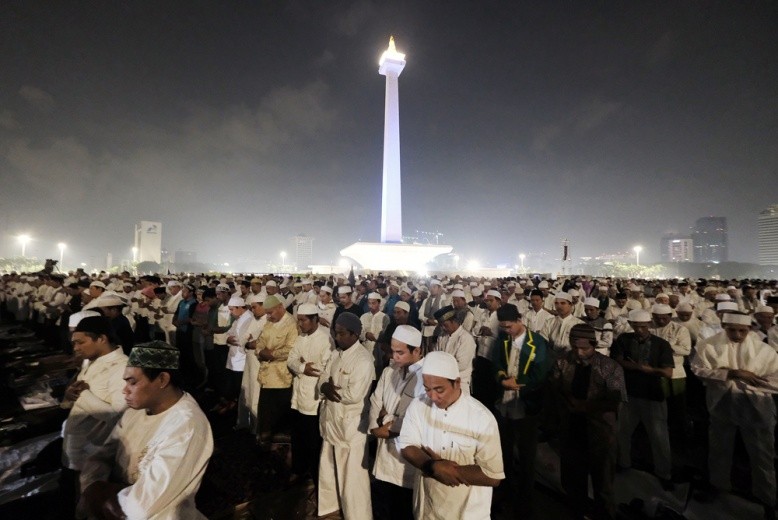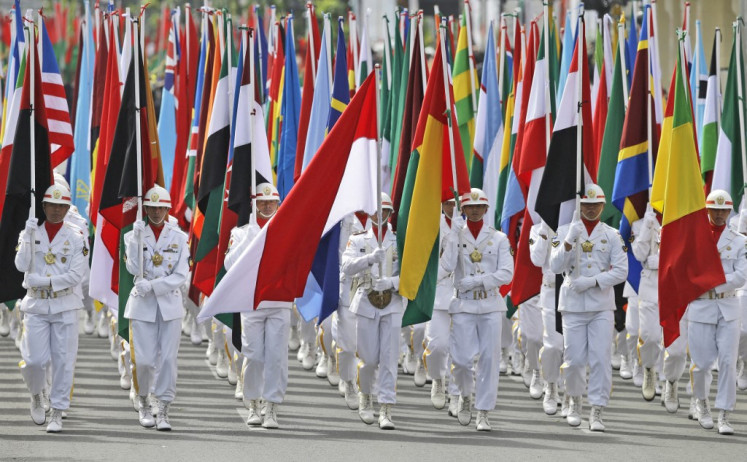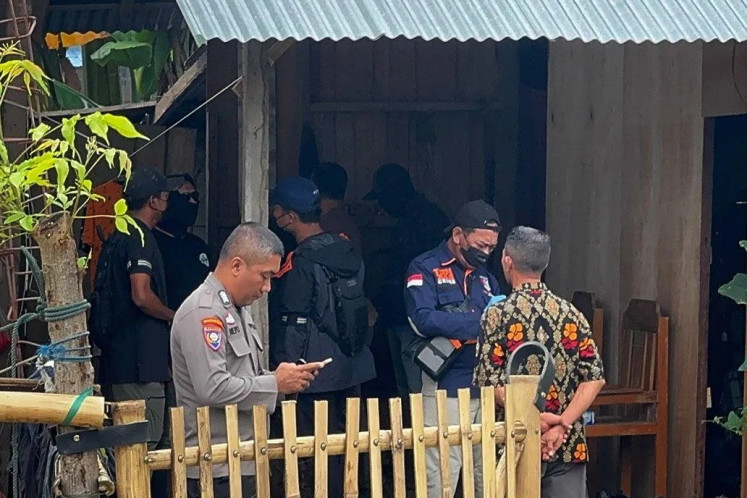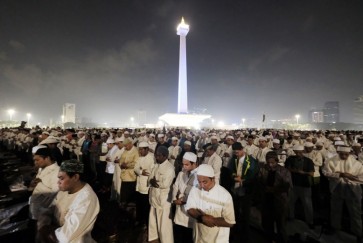Popular Reads
Top Results
Can't find what you're looking for?
View all search resultsPopular Reads
Top Results
Can't find what you're looking for?
View all search resultsWhat makes the 212 movement still significant?
After all, previously available issues for mobilization have lost, so perhaps only blasphemy remains for them, at least for today, to test how significant the movement still is.
Change text size
Gift Premium Articles
to Anyone
A
lthough it is still capable of attracting tens, if not hundreds, of thousands of attendees, the 212 movement, born out of the anti-Basuki “Ahok” Tjahaja Purnama rally on Dec. 2, 2016, is shrinking in terms of organizations and parties that make it up, and its significance depends on issues it can use to its advantage for consolidation. The movement’s latest reunion early this week reflects this.
This year’s reunion was smaller than last year’s due to the retreat of some influential figures and organizations (some have now joined the government’s coalition) and the less powerful issues available for them to mobilize what they call ummah (Islamic society).
Last year’s reunion was during the electoral campaign period and the theme was “defending tawhid”, referring to the burning of a flag carrying the symbol of oneness of tawhid (the Divine) by Nahdlatul Ulama (NU) youth paramilitary wing Banser in the previous month. While typically the explicit goal of the reunion’s committee was maintaining Islamic brotherhood, many among the reunion participants in the crowd last year were heavily political by shouting “ganti presiden” (replace the president) and signaling support for the then-incumbent’s challenger Prabowo Subianto. The reunion was in reality a form of political campaign for Prabowo, who attended the event at that time.
Last year, the reunion’s organizers were dominated by the Islam Defenders Front (FPI), and such is the case even more so this year. Some key Salafi-inclined organizations whose representatives spoke on the main stage last year didn’t enjoy the same opportunity this time. Moreover, Prabowo has joined the government; the 212 Alumni Brotherhood (the institutional representative of the 212 movement) felt betrayed because of this and, in place of him, they seem to want the current Jakarta governor, Anies Baswedan, who spoke on the stage, to run as a presidential candidate in 2024.
To consolidate the ummah, they therefore need a kind of new enemy. This year’s theme, “addressing blasphemy”, exploited, as apparent among the crowd, the case of both Sukmawati Soekarnoputri, Sukarno’s daughter, and Gus Muwafiq, a rising NU preacher, whose remarks on Prophet Muhammad they consider blasphemous.
The spiritual leader of the FPI, Rizieq Shihab, who the 212 movement declared to be the “great imam of Indonesia's Muslim ummah”, addressed the event through video from Saudi Arabia, that those “blasphemous” cases must be addressed by successive rallies until they are brought to “justice”. After all, previously available issues for mobilization have lost, so perhaps only blasphemy remains for them, at least for today, to test how significant the movement still is.
Seen from the perspective of democracy, that is exactly what’s still problematic about the movement: Blasphemy provides an easily exploited issue for them to orchestrate what scholar Cherian George calls “hate spin”, an offense-taking mechanism by political entrepreneurs to mobilize supporters and marginalize opponents. Hate spin undermines the democratic principle of the rule of law, changing it to a rule by mob, by utilizing vague regulations such as the Blasphemy Law.


















